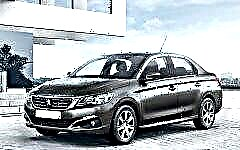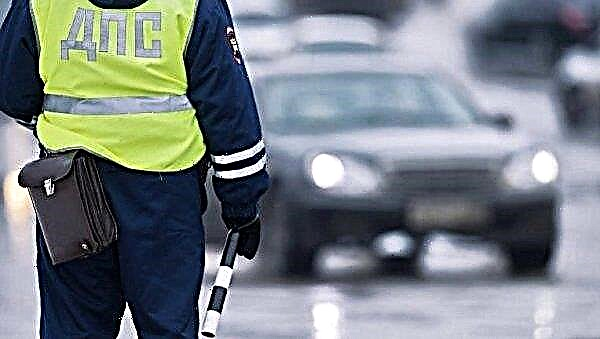
The content of the article:
- What is the threat of bribe
- Incitement
- Avoiding responsibility
- Lost in translation
On Russian roads, there are such cases every day when, after a minor offense, a motorist makes a deal with a traffic police officer. Unfortunately, the other side rarely gives up the simplest solution to the problem, compared to writing a traffic violation protocol.
At the same time, both parties perfectly understand that they are committing an illegal act, but in conditions when the car owner is in a hurry on business, and the traffic police officer is tired of standing by the road, this way seems acceptable to both of them.
The state intends to actively fight corruption on the roads, for which it purchases personal registrars en masse.

But the most important thing is that Dozor 77 is reliably protected from unauthorized extraction of information, which will not allow employees who are aware of a violation to erase the confirmation of accepting a bribe.
The registrar will be attached to the clothes of the traffic police officer, and all the data received will be archived and sent to a special server.
What is the threat of giving a bribe

Part of the reason for such a widespread corruption is the ignorance of the laws by the car owners themselves. It is clear that the traffic police officer is threatened with reprimand or dismissal, but the driver hopes to get out of an unpleasant situation.
However, this is a mutually punishable action, since the transfer to an official for the purpose of obtaining benefits of any material assets also entails punishment, which is spelled out in Articles 30 and 290 of the Criminal Code. The driver, if there is substantial evidence of bribe delivery to the traffic police officer, will be fined in accordance with the same Criminal Code:
- with a fine of 500 thousand rubles;
- a fine equivalent to the amount of the annual salary;
- a fine in the amount of a bribe increased from 5 to 30 times;
- correctional labor for no more than 2 years or compulsory labor for no more than 3 years;
- imprisonment for 2 years in conjunction with a fine of 5-10 times the amount of the bribe.
If the bribe was on an especially large scale, then the amount of fines will already vary from 1 to 3 million, as well as possible imprisonment for up to 5 years.
For example, if a driver specifically asks a traffic police officer to commit an illegal act or turn a blind eye to a committed offense, this is punishable by a fine of 1.5 million, as well as imprisonment up to 8 years with a fine 30 times the amount of the bribe.
The driver may face not only a fine, but also an alternative method of punishment in the form of forced or corrective labor for a period of 2-3 years:
- Correctional labor is assigned, as a rule, to those who have a stable job. For non-working persons, this method of punishment is agreed with the criminal executive body, because the work must necessarily be carried out at the place of residence of the perpetrator.
- Forced labor is allowed by the Criminal Code to replace imprisonment if the driver first committed a serious crime or was involved in a moderate violation. Since, in fact, this kind of work replaces imprisonment, the place of their implementation is appointed by the criminal correctional authorities. Moreover, in this case, no distinction is made between working citizens and the unemployed, and from the earnings received during forced labor, a certain amount will be withheld into the state treasury.
Incitement

Unscrupulous traffic police officers themselves can make it clear to the driver what is expected of them in return for jamming a conflict situation. This will not look like an obvious extortion, specific amounts will not be announced, but the violator of traffic rules will be prompted to take actions that will solve his problems with a representative of the authorities. This can be expressed in the excessively slow filling out of the protocol or in the description of the full severity of the offense.
Or a whole performance can be performed on the theme of a good and a bad police officer, when one threatens the driver with terrible punishments, and the second calms him down, offering to come up with another way out of the situation. Inexperienced drivers readily believe in the performance being played and jump at the chance to avoid the fine.
Experienced motorists know about the illegality of these actions, therefore they record what is happening on any device that has it. If the driver was with the passenger, this will help him in the further investigation of the bribery case. It is better not to agree to go to the patrol car for paperwork, this is done on purpose by a traffic police officer in order to get rid of witnesses. Only the driver who is detained under the law for a serious offense can be forced to go to the car.
Avoiding responsibility

If the bribe was initiated by a traffic police officer, the car owner can avoid responsibility for his misconduct in the following cases:
- When a traffic police officer demanded material reward, and the driver's actions helped to discover this fact.
- When the driver rewarded the inspector of his own free will, and then immediately reported the offense to the security service and actively participated in the investigation.
What happens in such a case? If the car owner nevertheless decides to go to a criminal conspiracy, later this can turn against him. In the event of an internal check among the traffic police, or if the driver decides to go to court on the issue of extortion, the accused inspector may refer to an attempt to bribe him and make himself a hero. Since the fact of the transfer of money is not recorded, the car owner himself may be in the dock. It is unlikely that a driver's license is worth a colossal fine or imprisonment.
Lost in translation

At the moment, the procedure for implementing these devices is not fully understood and thought out. From an organizational point of view, it is necessary to create a technical center in which all information received from the registrars will be processed and stored.
In any case, as a result, all suspicious records will end up on the desk of the head of the unit for an appropriate investigation.
There may be very controversial moments when a traffic police officer accidentally or on purpose closes the recorder's camera - how to assess such actions, because there will be no concrete evidence of illegal actions?











